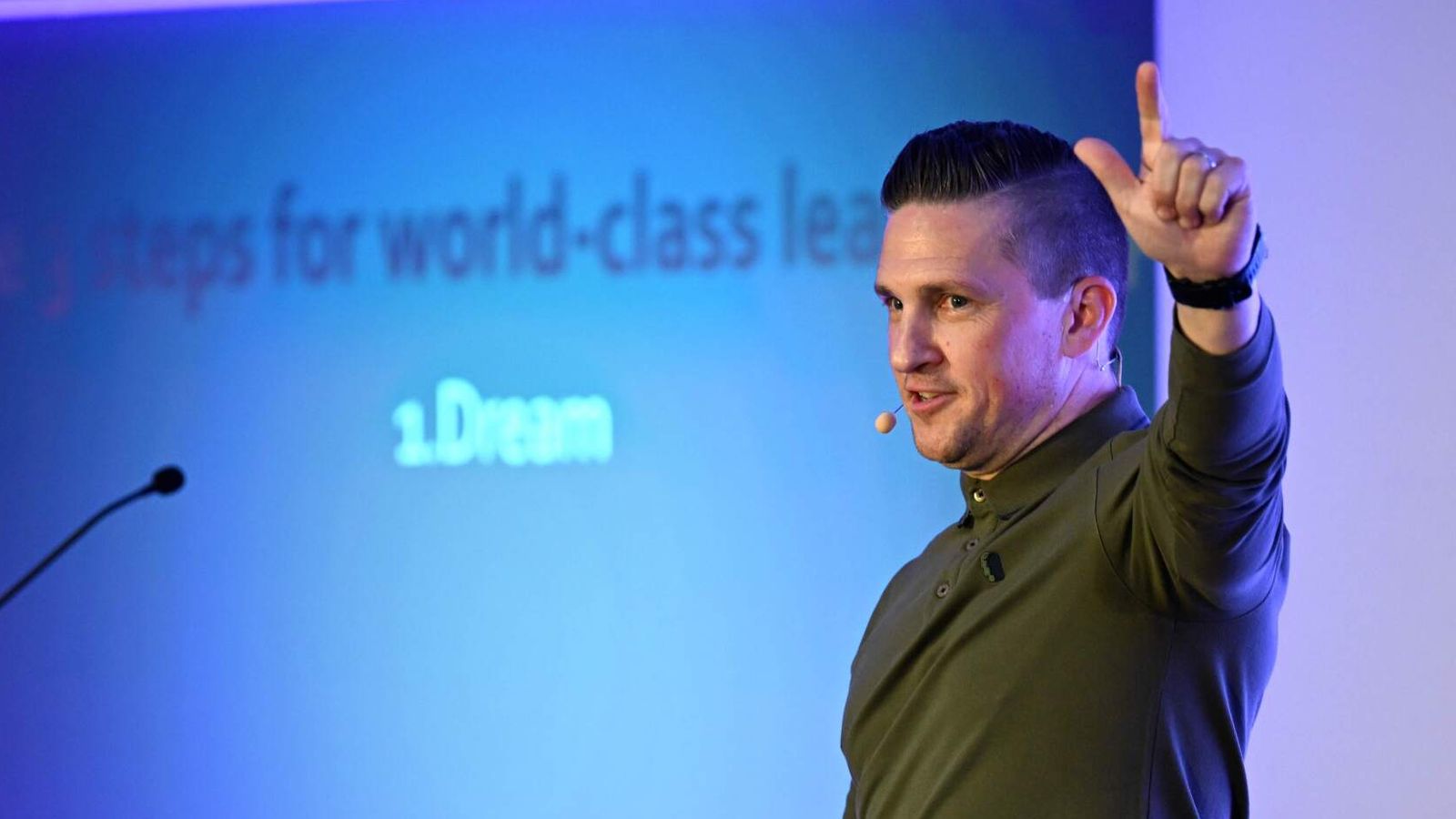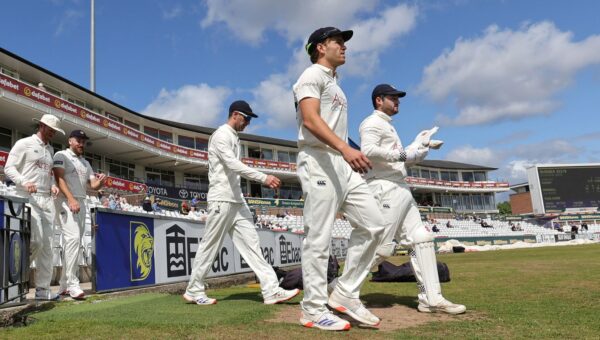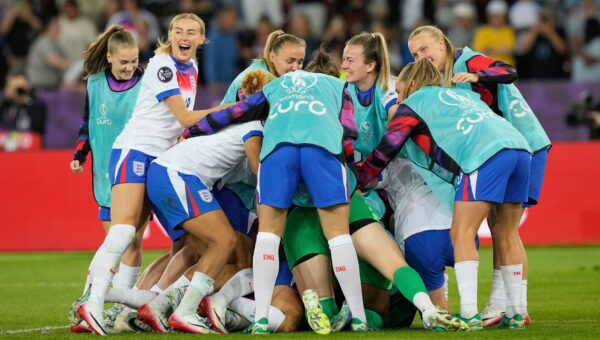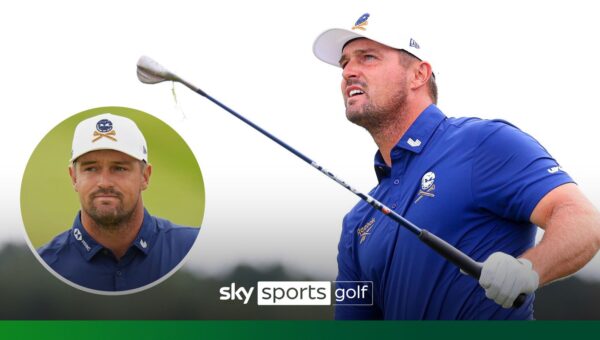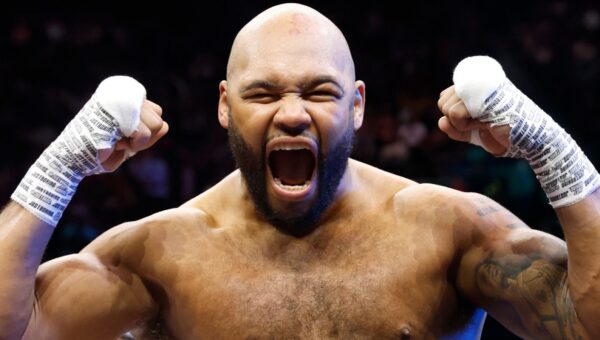Psychology in football: Few players consciously working to improve mental side of the game, says Paul McVeigh | Football News
Paul McVeigh is a former Premier League footballer who has become a performance psychologist who used visualization to help him at the top of the two professions. But he still thinks that the mental side of the game is overlooked too much.
“I would say that even if there could be more conscience now, I do not think there is more interest,” says McVeigh Sky Sports. “Very few players do it.
One could assume that in an industry of several billion pounds like football, each advantage is explored. But McVeigh, an international from Northern Ireland who played and marked in the Premier League for Tottenham Hotspur and Norwich City, says that this is not the case.
“How many players consciously improve the mental side of their game? Very little in my experience.”
And this experience is vast. After his retirement, he spent years running for club players, invited to discuss the importance of psychology on their performance. Many players had no interest. “They just stuck a box,” he explains.
“These seven years to do were really difficult because you had to sell the subject of sport psychology to elite athletes, which is crazy. With some, you could literally give them the winning lottery numbers and they would not be interested.”
Others kissed him. “There were always four or five who liked it. They wanted to learn and improve.” McVeigh mentions Jacob Murphy, Aaron Wan-Bissaka and Tyrick Mitchell, all now in the Premier League, as the examples of those who took on board.
McVeigh realized earlier than most of the head in the right space had an impact. He remembers a conversation with his father obsessed with golf when he was only 17 years old who opened his eyes to the powers of visualization. “I called home,” he explains.
“My father was a big golf fan and he told me that Jack Nicklaus would always visualize where he wanted the shots to have.
“I was just open. I started to do it when I was a child, visualizing the goals I wanted to score every morning and every night. The majority of the goals I have scored during my 20 -year career were exactly such as Visuais when I was a child. I took advantage of it.”
But what is this visualization? Everyone imagined scoring the winning goal during the World Cup final, surely? Well, in a way. But McVeigh breaks down it much in more detail. “It is essentially a question of creating a film in your mind that you want to arrive,” he says.
“For example, visualize the picking of the ball somewhere between the central circle and the edge of the 18 yards box. Then, visualize the departure on the side to receive the ball, dribbling in front of someone and pulling in the upper corner from 25 meters.
“Now continue to play again and again. But add more details. Think about the colors around you, the shape of the opposition body, whether large or small, the sound of the crowd, everything you need to make the whole scenario real in your own mind.”
The goal is to make it all feel automatic. “You just try to create a neural route in order to become unconsciously competent.” This is the last step in competence, when a person is able to perform a task without having to think about it.
McVeigh offers the example of what’s going on when a player goes to the goal in an individual situation. “You often hear commentators say that the player had too long. It is because this neural path is not anchored. They think about it.”
It is not the body, mentality rather than technique, which is often the key factor. McVeigh mentions Cole Palmer, who scored 28 goals in his first 37 Premier League games for Chelsea before embarking on a series of 18 appearances without scoring.
“One of the best players suddenly spends three months without scoring? Everything is in mind.” And Mohamed Salah? “He doesn’t think if he’s going to score in matches, he thinks how much. He is a real differential in the state of mind.”
He talks about remembering the need to control controllars, focusing on the things you can change as a player – which is your own performance rather than that of you. “You can’t even control your teammate and they try to help you.”
McVeigh continues: “I really think that is where players fight when they do not have the strategies in place. When they do not have the experience to manage themselves and put themselves in pressure situations, it can be really difficult.
“Players who learn the fastest and continue to learn are those who continue.” Two former out -of -competition teammates. “People like Teddy Sheringham. People like Sol Campbell who moved to semi-center and continued to learn to be a best center-center.”
McVeigh wants not to be too romanticizing the past because he has watched the matches. “It’s in fact embarrassing. I would like to have a kind of defense for my whole generation, but I saw too many sequences. The ball is like a hot potato.”
He laughs at “players who are in 20 meters of space and who throw it” and remembers having faced Spain for Northern Ireland. “Carles Puyol or anyone was just going to transform it, give it to Xavi and we wouldn’t see the ball anymore for 10 minutes.”
He does not agree with Sky Sports Gary Neville’s assertion of Gary Neville that modern game is more boring because players are like robots now. “You can’t be a robot because the game changes with each fraction of a second and you are constantly reacting to the game,” he said.
“So, I completely disagree on the part of reduced freedom. Where I agree with him, this is the quantity of information they get. Now you may have nine different coaches who all want to tell the player something. I don’t necessarily think it is useful.
“Arsene Wenger is used to giving this Arsenal team three points before a match. The research in psychology tells us that the maximum amount of information we can face is seven bits of information. Wenger wanted to reduce them to three things.”
A clear spirit helps, preferable which is free from negative thoughts. McVeigh still remembers being, in the age of the age of his career in Norwich and a sport psychologist stressing that all the information provided to them have been formulated negatively.
“Everything we were talking about, the language used not want to do. You might think that it is not a huge affair, it is only the language. But psychologically, you do not focus on the don’t do it Part – which focuses on the negative. “”
Now 47 years old, McVeigh’s career has gone from conversation with football players to speak to figures from everyone and the business world. He relies on these same learnings, first taught by his father in adolescence – with the help of Jack Nicklaus.
“I had never spoken publicly before, but I have to do it all the time in the work I do now. So I started to visualize the steps for Microsoft and Rolls-Royce and KPMG.” It is expensive to speak at the Conference of Women in Sport in London.
He still works with players, but only those who want to improve. “We do not deliver group sessions now.” Those who are ready to kiss it will be those who will find an advantage. Because McVeigh is more convinced than ever. “Everything comes down to psychology.”
Sky Sports to show 215 live games in 2025/26
Since next season, the coverage of the Premier League in Sky Sports will have 128 games at least 215 live games exclusively.
And 80% of all the Premier League television matches next season are on Sky Sports.
